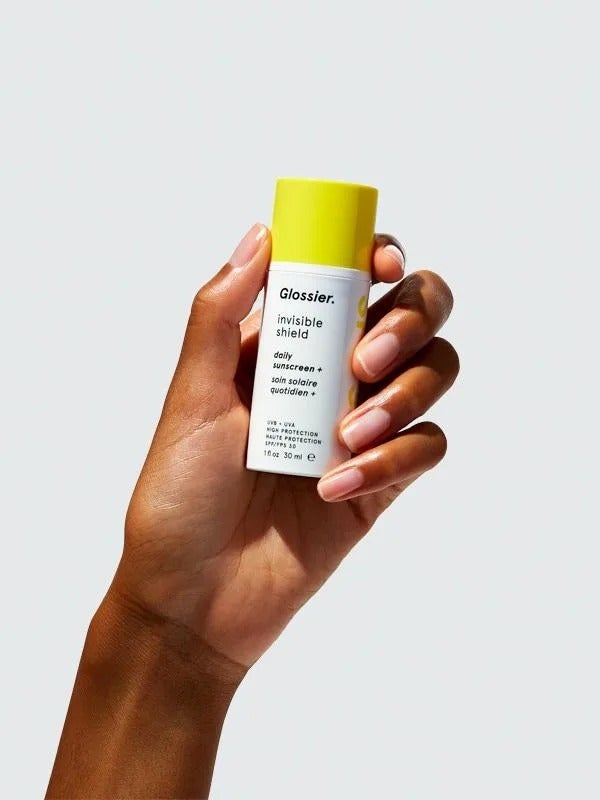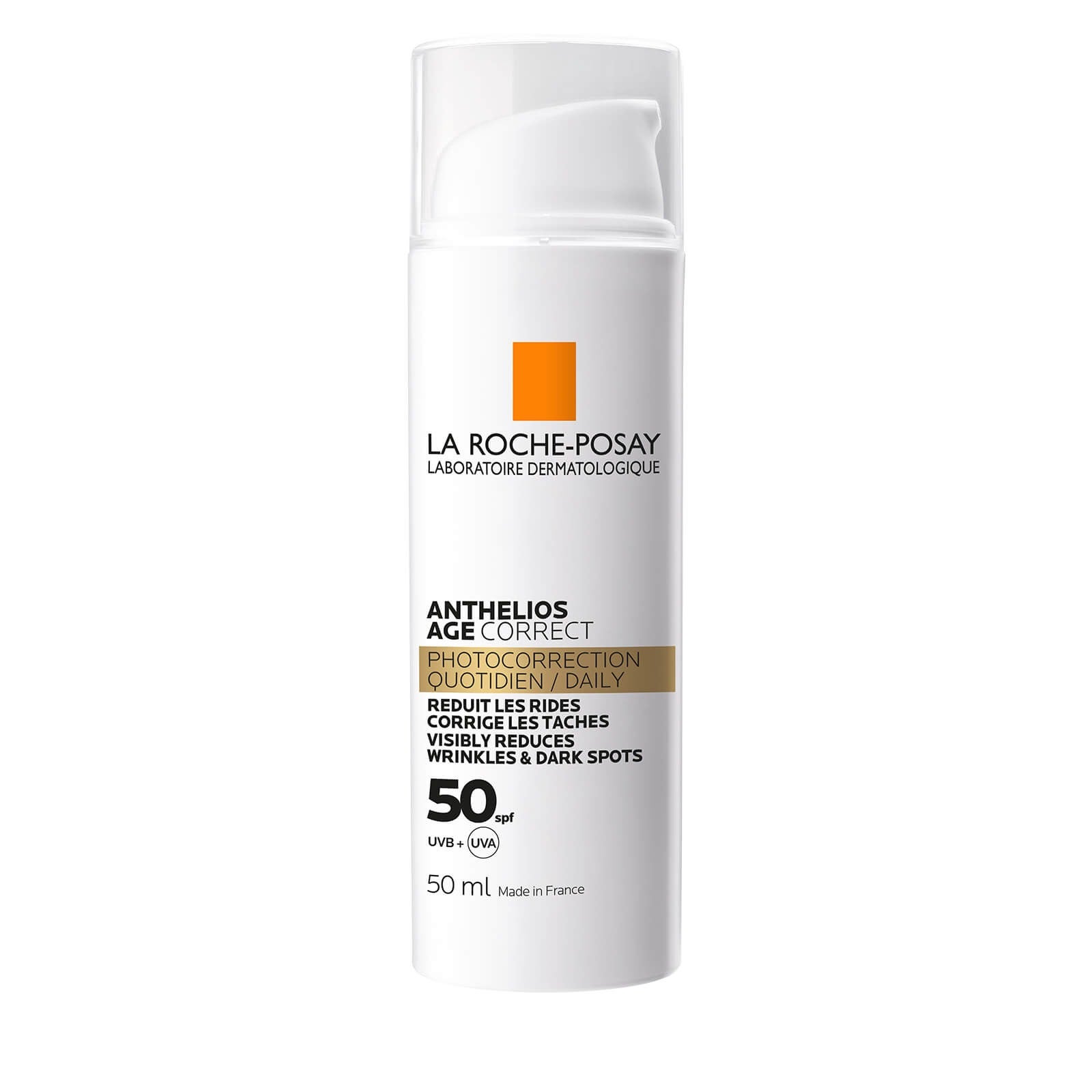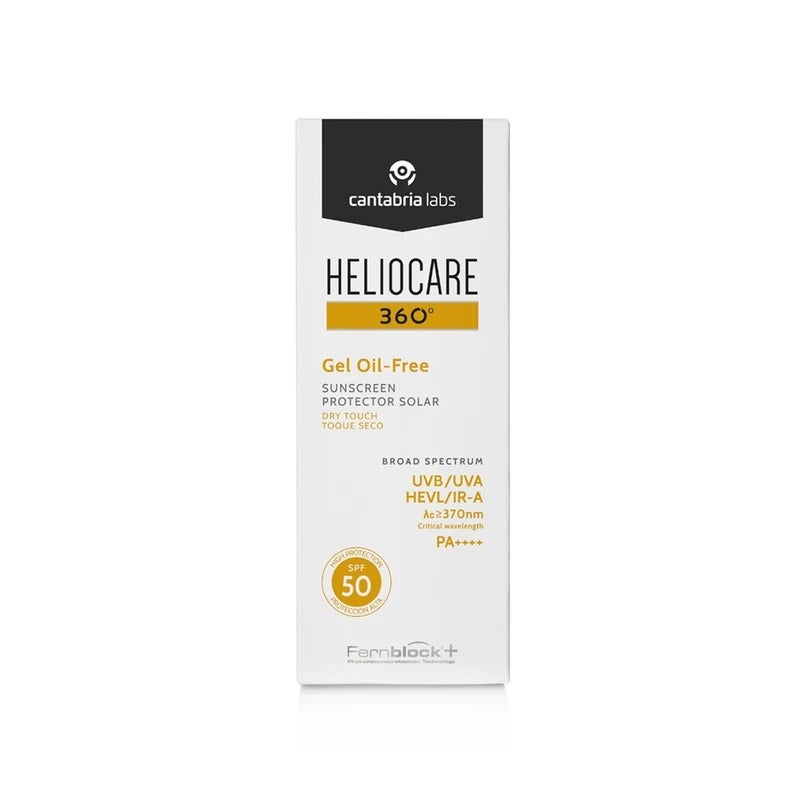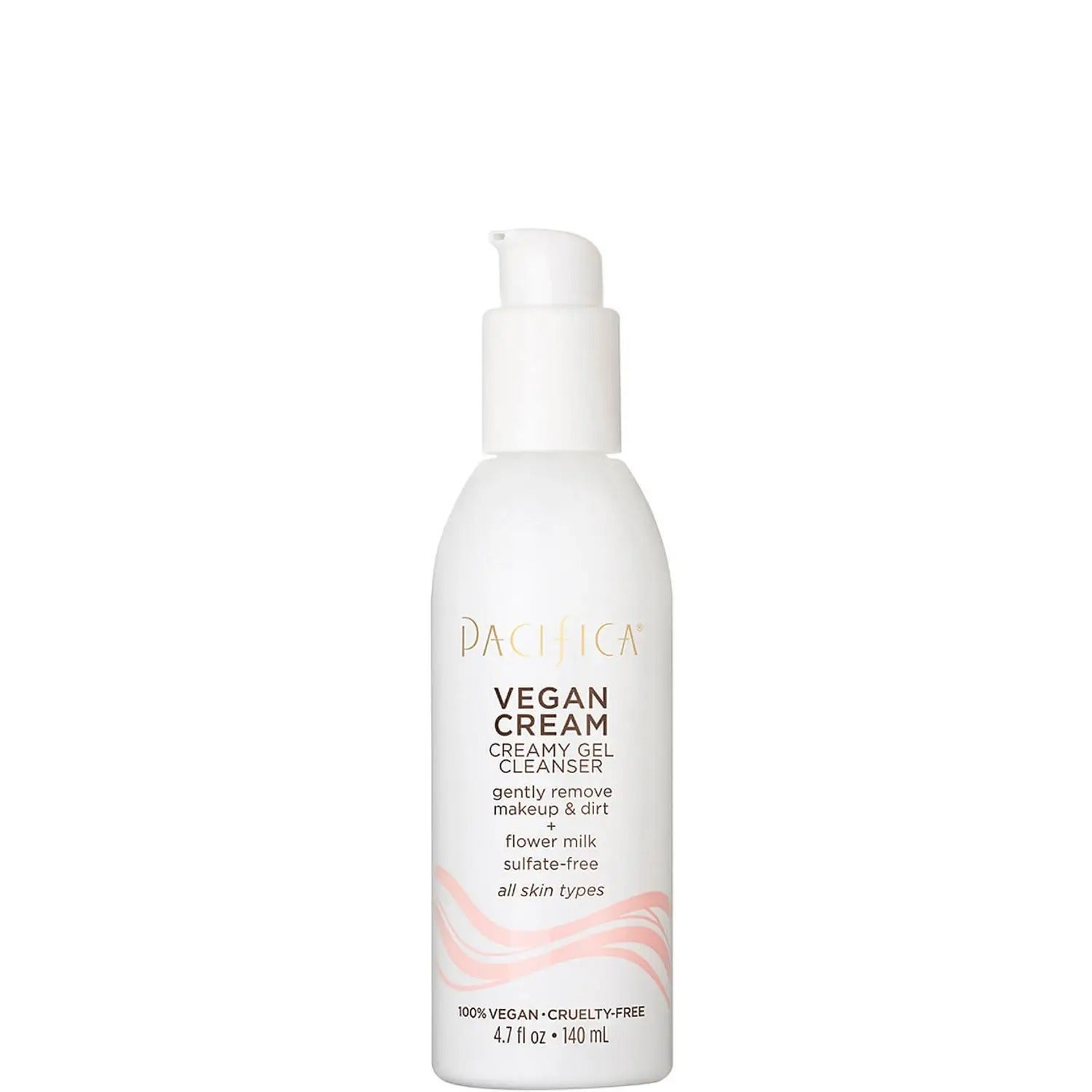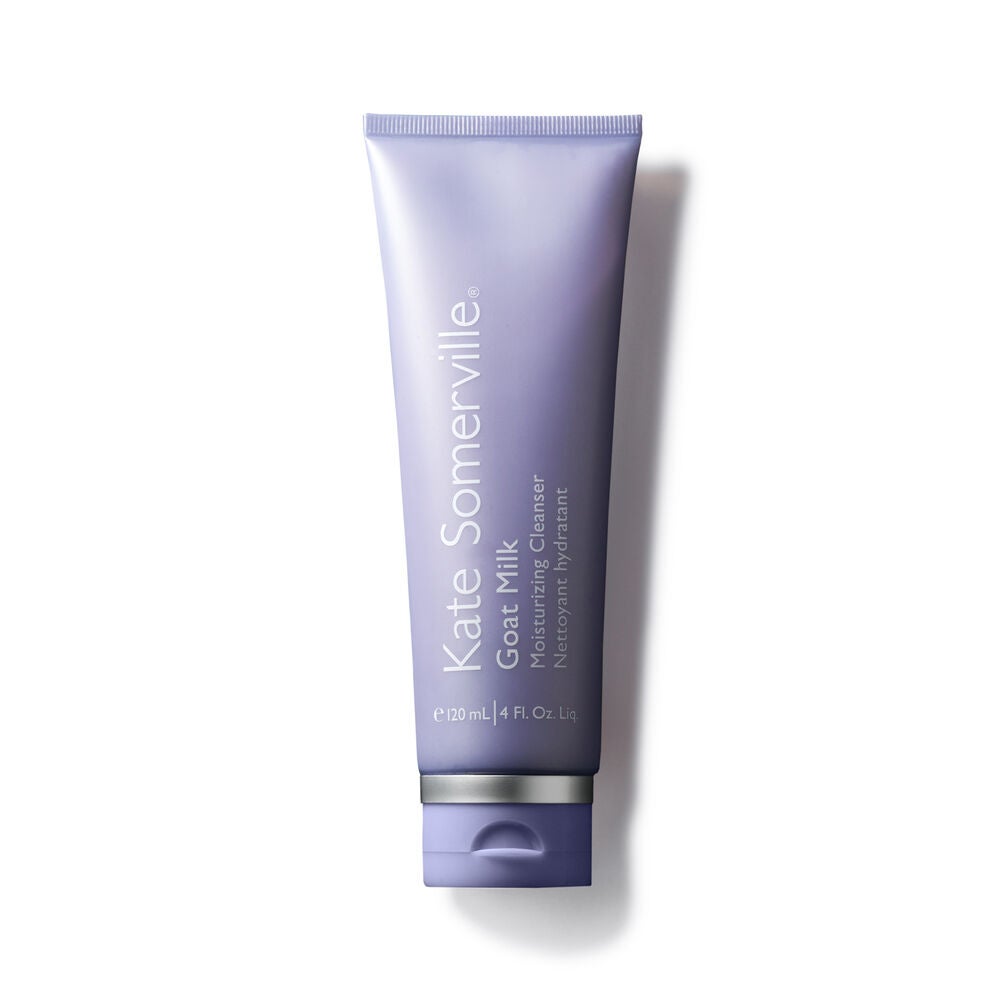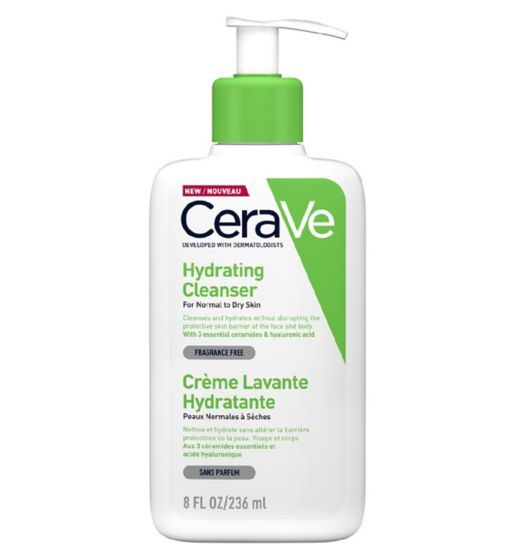Are You Your Skin’s Own Worst Enemy?
Photographed by Caroline Tompkins and Myesha Evon Gardner.
At Refinery29 Australia, we’re here to help you navigate this overwhelming world of stuff. All of our picks are independently selected and curated by the editorial team, but we may earn commission or other compensation from the links on this page.
Whether you consider yourself a skincare enthusiast, more of a novice or somewhere in between, it's highly likely you've been swayed by at least one viral skincare trend in the past year. If you've successfully avoided the pull of slugging, face taping and making your own face scrub, you might have done yourself a favour. But for every dubious hack you swerve, it's possible that a couple are hidden in plain sight in your skincare routine.
AdvertisementADVERTISEMENT
From layering various products to exfoliating daily, some practices have become so ingrained in our skincare rituals that it's hard to imagine not doing them. The expert point of view? Clinics are packed with individuals who it seems are doing too much, too often — and it might not have the best impact on your skin in the long run.
In its "Life After Lockdown: The Skincare Trends" report, L'Oréal revealed that the online conversation around skin concerns has risen by 71% since pre-lockdown. The report included a section dedicated to the ways in which many of us are "going overboard" — whether that's using too many ingredients or simply the wrong ones for our skin type. Similarly, Dr Emma Wedgeworth, consultant dermatologist and British Skin Foundation spokesperson, has talked openly about the effects of social media, in particular the volume of questionable skincare advice and futile beauty crazes born out of the pandemic.
It makes sense. We're still treating maskne (acne caused by face masks) and other skin gripes triggered by stress, anxiety and illness — and that's before we get to our collective penchant for DIY beauty. But Dr Wedgeworth believes that blindly following skin trends on social media can cause more harm than good. "Everyone's skin is different and the key to great skin is adapting your skincare to your individual needs."
With that in mind, here are a handful of increasingly popular skincare steps that beauty experts want you to think twice about.
AdvertisementADVERTISEMENT
Joining skincare forums
Consultant dermatologist Dr Anjali Mahto has seen a new, growing trend in clinic. "Personally, I've noticed the use of Facebook groups and online forums for skincare advice," she says. Dr Mahto understands the sense of community these groups bring but says that the advice being given is often inaccurate and sometimes damaging. "This week alone I've had two patients who took advice from an online Facebook group and it has triggered eczema and perioral dermatitis [skin irritation around the mouth]," she explains. Dr Mahto adds that neither patient was looking to treat a skin concern per se. "Rather they were both clearly getting FOMO about products." The fear of missing out is understandable. Serums and moisturisers are launched daily, all promising impressive results. Add in countless influencer and beauty expert reviews and it's no wonder we're often swayed into parting with our money. But experts are united in asserting that no one needs all of these products at once.
If you're keen on experimenting, it pays to introduce just one product into your skincare routine at a time, rather than attempt to overhaul your entire routine or copy someone else's. And when it comes to advice, you're better off in the hands of a professional. "It's more beneficial in the long run if you speak with a consultant dermatologist," says Dr Mahto, or even your GP if a dermatologist isn't easily accessible. Here are a few tips for talking to your doctor about skin. "Often, they can diagnose any skin issues you're having and put you on the right treatment plan," says Dr Mahto.
AdvertisementADVERTISEMENT
Layering multiple skincare products
Dr Mahto points out that some of her patients have started taking advice from multiple people online, including tips that could be risky for their skin. This includes which active ingredients they should be using (for example vitamin C and retinol) and how to combine them in a skincare routine. Put simply, says Dr Mahto, excessively using skincare has a tendency to trigger all manner of underlying skin conditions, such as acne and eczema. Dr Parisha Acharya, aesthetic doctor at Waterhouse Young Clinic, agrees, particularly when it comes to mixing and layering buzzy skincare products. Two common ingredients include exfoliating acids (like glycolic, lactic and salicylic) and retinol — the latter of which has an enormous 1.3 billion views on TikTok. "Things like exfoliating acids and retinol are great but do not suit every skin type," says Dr Acharya — nor do they work when directly layered. "In fact, using these all together can wreak absolute havoc on your skin's barrier, resulting in sensitivity, redness, dryness, peeling and irritation." The key to achieving healthy skin is to go slow. "Use the ingredients on different days," says Dr Acharya, "and give your skin a break from time to time so that it is not constantly bombarded with strong, active ingredients."
Dr Wedgeworth explains that exfoliating acids can be very useful for oily skin but suggests avoiding them if you have sensitive or redness-prone skin. "Retinoids are a mixed bag, too," she adds. "People are often so keen to harness the benefits to do with ageing that they use them too enthusiastically." Overdoing it (by using it every night, for instance) can cause flaking, peeling, redness and make skin feel uncomfortable and sore. "Starting slowly with a low-strength retinol [for example 0.2%] and then gradually building up is the key to success," continues Dr Wedgeworth. It's also important to wear a high-factor sunscreen every day as exfoliating acids and retinol can make skin sensitive to sunlight.
AdvertisementADVERTISEMENT
Following a set number of skincare steps
Despite disapproval from pros, multiple-step routines still reign supreme, particularly on TikTok and Instagram. Among experts and influencers, the cleanse, tone, treat and moisturise mantra is drilled into us on the daily, with five and even 10-step regimes continuing to be popular. But according to aesthetician Alicia Lartey, there's no such thing as having a particular number of steps in order for your routine to be beneficial. "The most important thing about forming a routine is forming one that works for you," she tells R29. "In my opinion, you should never follow a skincare trend. I advise only doing something if it is suitable for your skin type." If a quick face wash and a little moisturiser works for you, that's great.
Everyone should be double cleansing
Another trend being called into question by celebrity facialists like Joanna Czech (who counts Bella Hadid and Kim Kardashian as clients) and Jasmina Vico (the pro behind Jodie Comer's clear skin) is double cleansing. Essentially cleansing twice for squeaky clean skin, it can benefit oily complexions or those who wear foundation and sunscreen during the day by reducing clogged pores, for example. Although Dr Acharya says that the method can enhance skin cleansing and result in a better prepared surface for applying your skincare products, not everyone needs to cleanse multiple times. "There is no need to over-cleanse the skin," says Dr Wedgeworth, "as it can damage the skin barrier," resulting in stripped skin that can become dry and uncomfortable. Dr Wedgeworth explains that a single cleanse is often perfectly adequate, especially if your skin isn't on the oily side.
AdvertisementADVERTISEMENT
"The caveat here is that every skin type differs," adds Dr Acharya, who suggests investing in a gentle cleanser to avoid irritation and dermatitis. Experts agree that double cleansing isn't necessary in the morning (unless you've fallen asleep in your makeup). If you feel a splash of water followed by moisturiser or SPF is enough, there's no reason to add extra steps.
Buying into novelties
From skincare fridges to peel-off masks, brands have a knack of convincing us to drop our hard-earned cash on things we don't necessarily need. In clinic, Alicia has noticed a trend for many facial tools but one in particular has caught her attention recently. "People are being urged to use a facial steamer at home," she tells R29. TikTokers are also hot on the trend, with face steaming amassing 40.4 million pairs of eyes. So do you need one? Absolutely not, says Alicia. "It's unnecessary to do this and can potentially damage the skin," she continues. "Facial steaming is used in some clinics to help 'warm up' the skin and allow for easy removal of oils and debris from pores. But for people with dry skin, I'd suggest avoiding this as it could make the skin drier or potentially cause issues in the long run." Dr Acharya includes electric cleansing devices and pore-cleaning tools on her long list of scam items in beauty.
It's not just facial tools. Add-on skincare products are also proving to be a problem in dermatology clinics. In L'Oréal's report, dermatologist and trend forecaster Dr Uliana Gout mentioned that she has had to consult and treat "a lot more congestion, blemishes, dilated pores and skin sensitivities" as a result of clients going back to using facial oils over the past year. A quick TikTok search for "skincare hacks" proves the trend's popularity over moisturisers and serums. One of the top videos shows a beauty influencer extolling the virtues of oils for achieving "really good skin".
AdvertisementADVERTISEMENT
A little slice of luxury, facial oils seem to be all the rage at present, says Dr Acharya. But she hits home that they may not be beneficial for oily skin types and rosacea or acne-prone skin. They have the ability to cause inflammation, seconds Dr Gout, while Dr Acharya explains that they can irritate skin (especially if fragranced), potentially leading to blocked pores and congested skin. "This is a skincare trend I would steer well clear of," she tells R29. Dr Wedgeworth agrees. "I don't find facial oils benefit the skin," she says. "They can frequently clog pores, causing closed comedones [small bumps underneath the skin] and acne, and are actually not as effective for hydration as well-formulated moisturiser."
The expert consensus? Skin is unique across the board. It's easy to get caught up in trends, hacks and buzzy techniques but they're not for everyone — and you certainly don't need to do them all at once. If we've learned anything from the professionals and big beauty movements like skinimalism, the most effective approach for looking after your skin post-winter is less is more.
Refinery29's selection is purely editorial and independently chosen – we only feature items we love! As part of our business model we do work with affiliates; if you directly purchase something from a link on this article, we may earn a small amount of commission. Transparency is important to us at Refinery29, if you have any questions please reach out to us.
AdvertisementADVERTISEMENT







